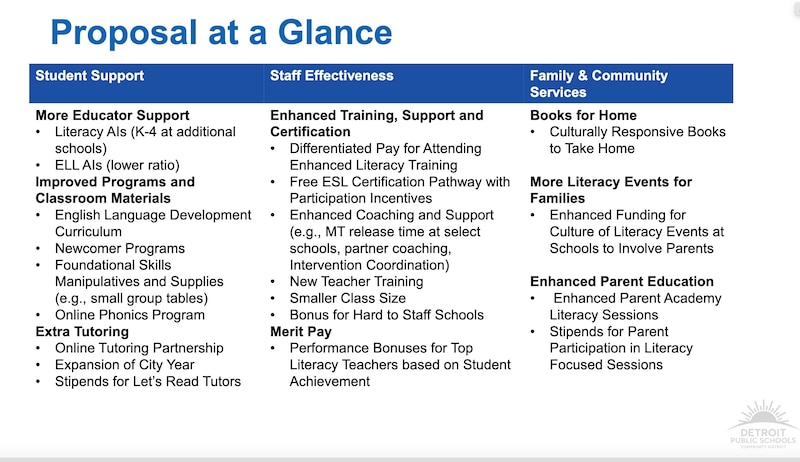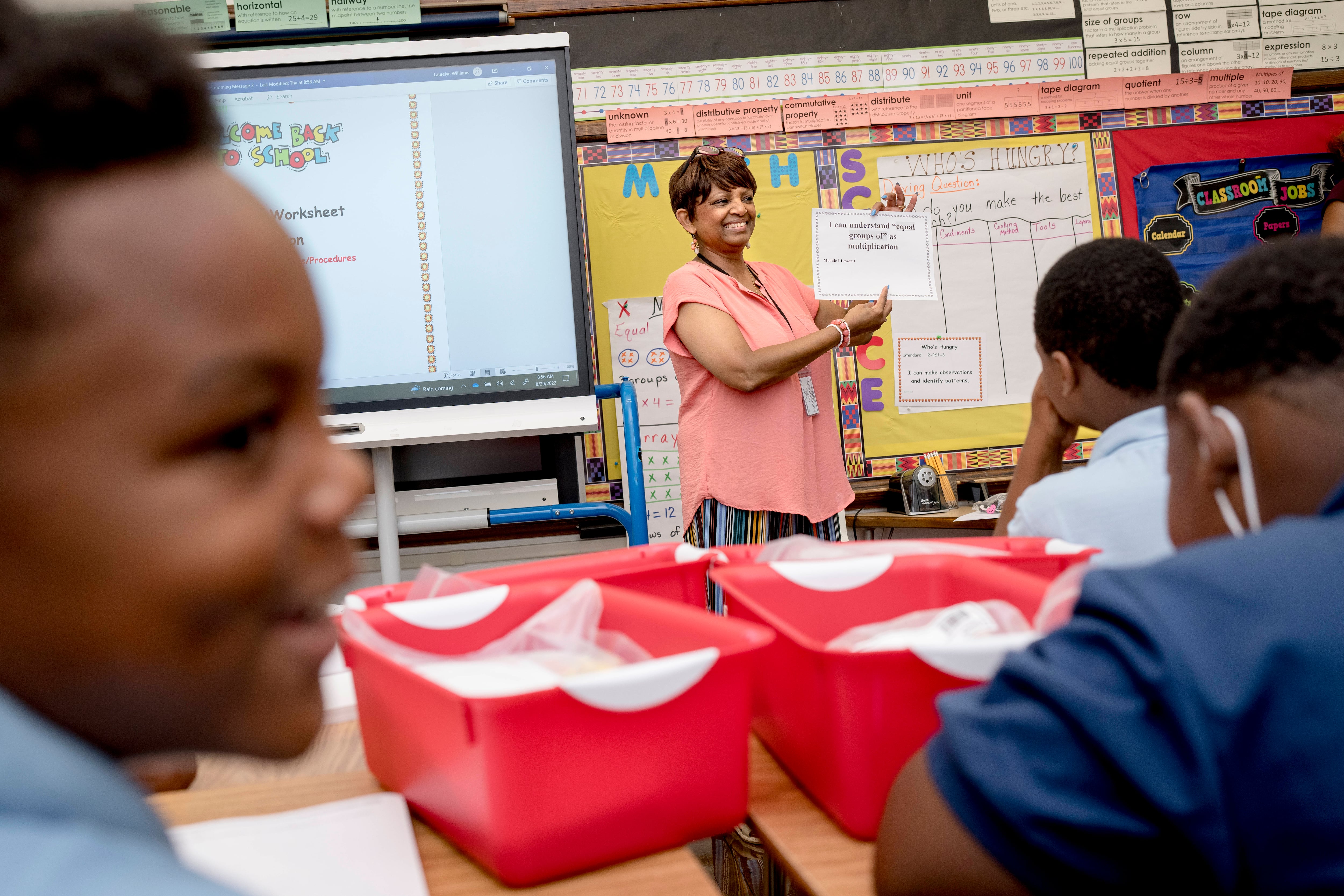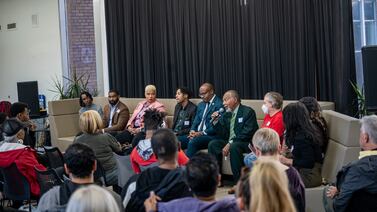Detroit school district officials are finalizing plans for spending $94.4 million in literacy lawsuit settlement money, with a proposal that invests heavily in student support, teacher training, and parent resources.
Nikolai Vitti, superintendent of the Detroit Public Schools Community District, outlined the proposal to members of the school board finance committee during a meeting Friday morning. He said the full board will discuss the proposal more at an April 15 school board retreat.
The district’s plan aligns with about 90% of a proposal released last month by a task force that spent months getting community input on how the money should be spent, Vitti said.
The state allocated the $94.4 million to the district as part of a settlement of a lawsuit, filed in 2016 and settled in 2020, that alleged Michigan failed to ensure students in the district received a proper education during a nearly 20-year period in which the state controlled the district.
Vitti said the district has already seen improvements in literacy.
“Our goal is to accelerate … and to outperform city charter, county average, state average,” Vitti said.
Here is how the district is considering spending the money:
More students would receive help from academic interventionists
The district had originally anticipated spending some of the money to offer a summer school program, but a grant from Ballmer Group is covering the cost of that program at a number of schools.
That is freeing up settlement money to be used in part to hire more academic interventionists who work closely with students in grades K-4, Vitti said. Academic interventionists can work with small groups of students or one-on-one.
“That is central to improving the foundational skills that students lack in the early grades.”

The district is already using federal and grant dollars to place academic interventionists at some schools. The literacy lawsuit money will allow the district to expand to all elementary schools. There are nearly 80 schools that have K-4 grades.
Board member Sonya Mays, who chairs the finance committee, questioned whether the district would have to lay off the academic interventionists when the money runs out.
The settlement requires the district to spend the $94.4 million over a three year period.
It’s a reality, Vitti said. But he believes the district will be able to take advantage of other funding sources. He also said that “natural attrition” could be a factor in the district’s favor, as well as some academic interventionists opting to transition into a teaching position.
“I don’t think we will be in a chaotic situation,” Vitti said.
The bigger challenge is whether the district will be able to hire enough academic interventionists. The pool has been shrinking, Vitti said.
In addition to academic interventionists, the literacy lawsuit money will also be used for online tutoring, to expand City Year, a program that provides tutoring for students and support to teachers in many district schools, and to provide stipends for Let’s Read tutors, who currently volunteer their time to help students with literacy.
Teachers would get more training and support
For staff, the proposals revolve around providing more training, some bonuses, and improving the working environment to improve learning. Some of the efforts would need to be bargained with the Detroit Federation of Teachers.
Here are some of the top items:
- Providing more pay for teachers who attend enhanced literacy training
- Paying teachers to earn an English as a Second Language certificate
- Providing additional coaching and support
- Reducing class sizes
- Providing bonuses for teaching in hard-to-staff schools
- Creating a merit pay system that would provide bonuses to the district’s top literacy teachers, based on student achievement
District would provide books for home, literacy events, and parent education
Families would also benefit from the literacy lawsuit money. Among the proposals the district is considering:
- Providing culturally responsive books for students to take home
- Involving parents in culture of literacy events in schools
- Providing stipends for parents who participate in literacy-focused sessions
Chronic absenteeism remains a barrier, even with settlement money
Mays questioned how the literacy lawsuit money could be spent on addressing chronic absenteeism, saying all the initiatives that are part of the proposal can be diminished if the district’s rates of chronic absenteeism remain high.
During the 2022-23 school year, 66% of the district’s students were chronically absent, meaning they have missed 18 or more days.
Vitti said the strict requirements of spending the lawsuit settlement money bars using the money directly on chronic absenteeism initiatives, such as hiring more attendance agents. But some of the district’s proposals, such as lowering class sizes, providing incentives for students to read books and participate in academic contests, and paying parents to attend education classes, may increase engagement.
“You know that’s not very satisfying, right?” Mays responded.
“Yes, I agree. But that was the condition of the settlement,” Vitti said.
Lori Higgins is the bureau chief for Chalkbeat Detroit. You can reach her at lhiggins@chalkbeat.org.





